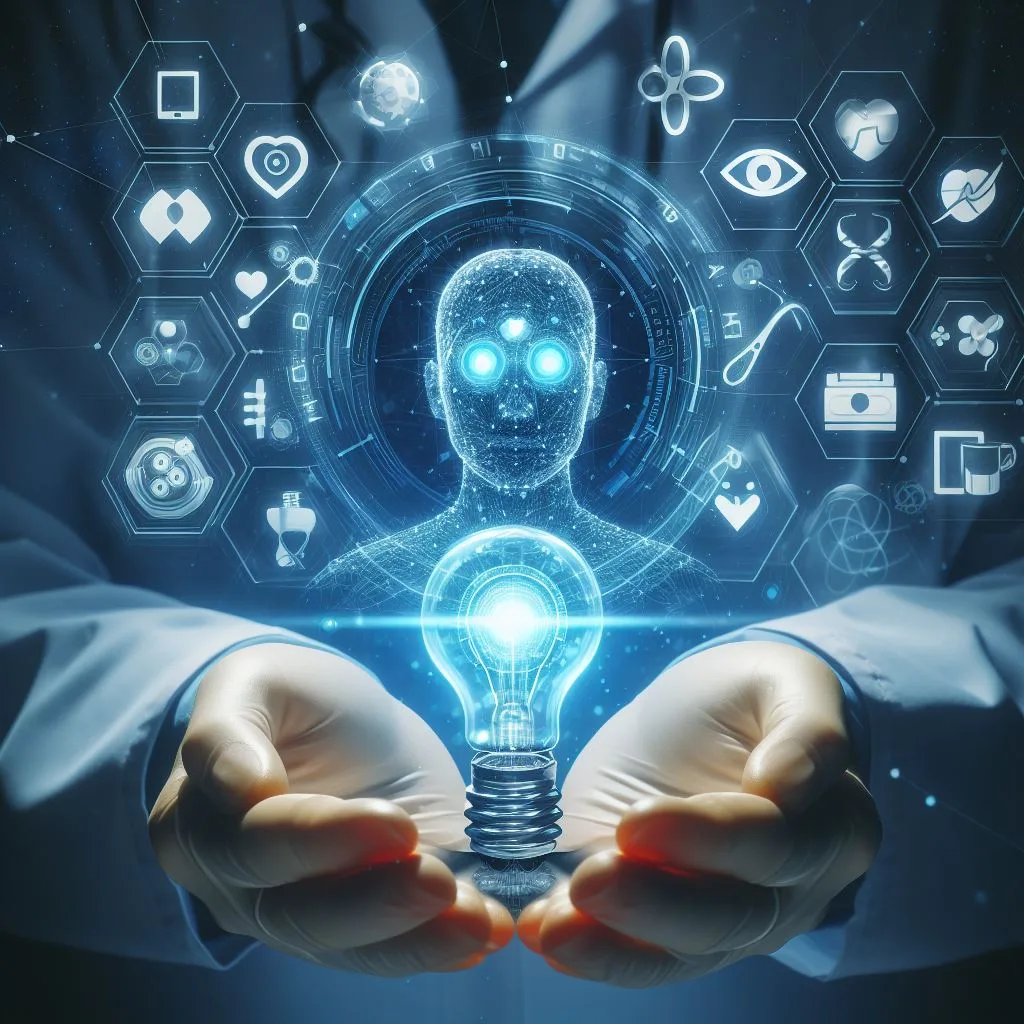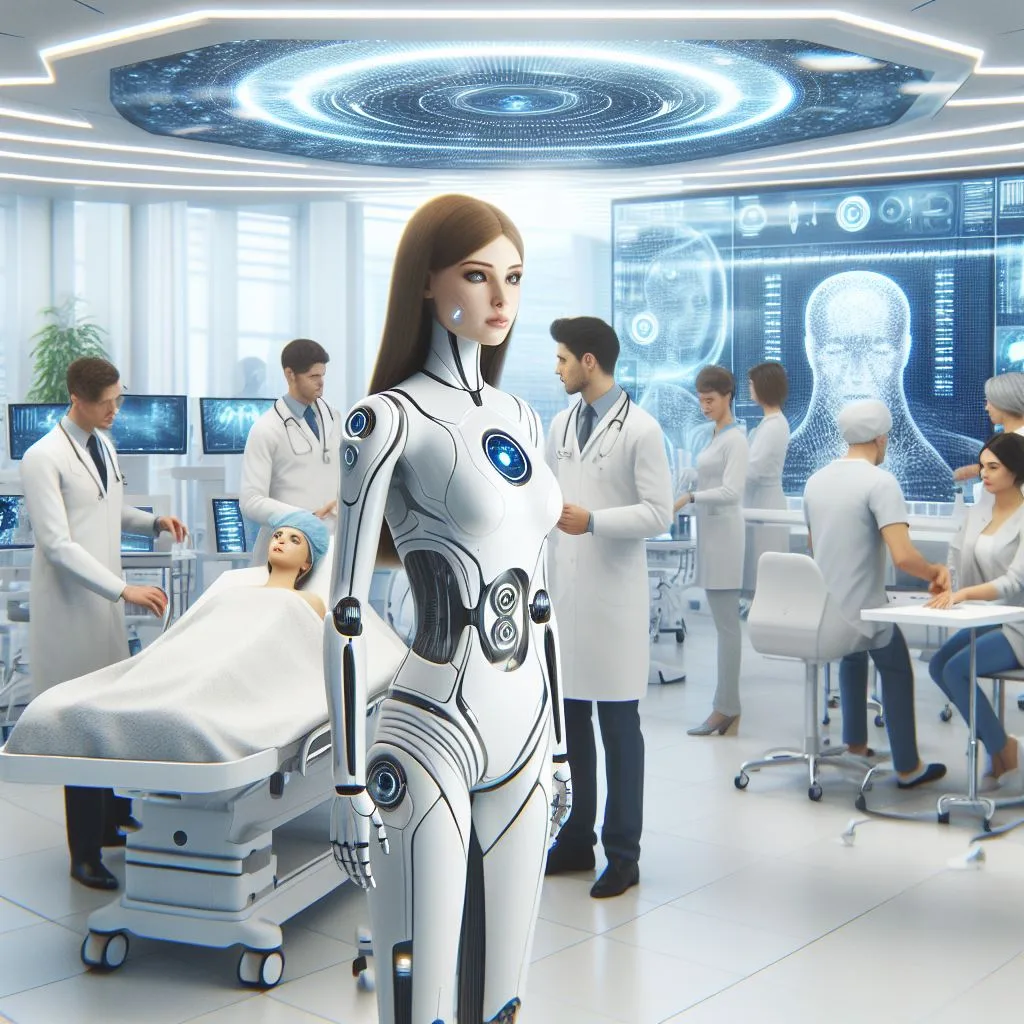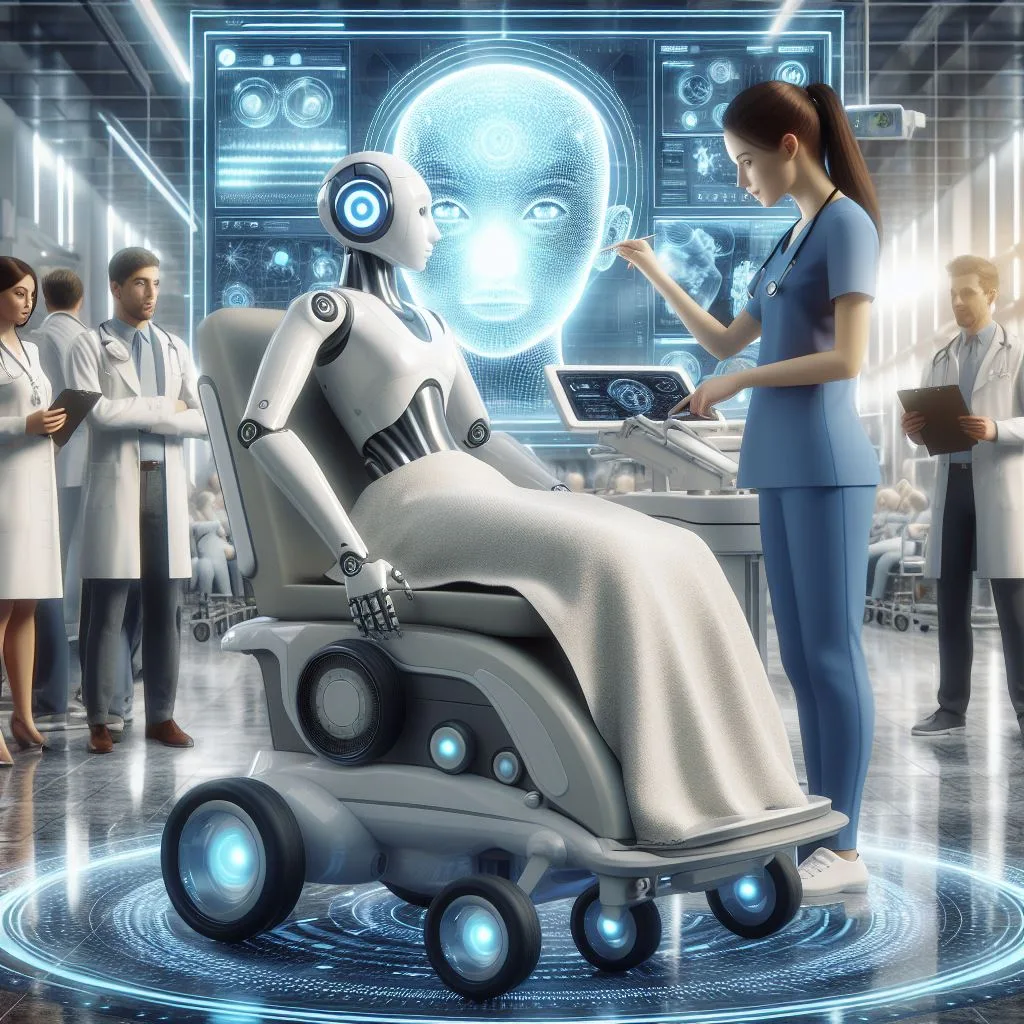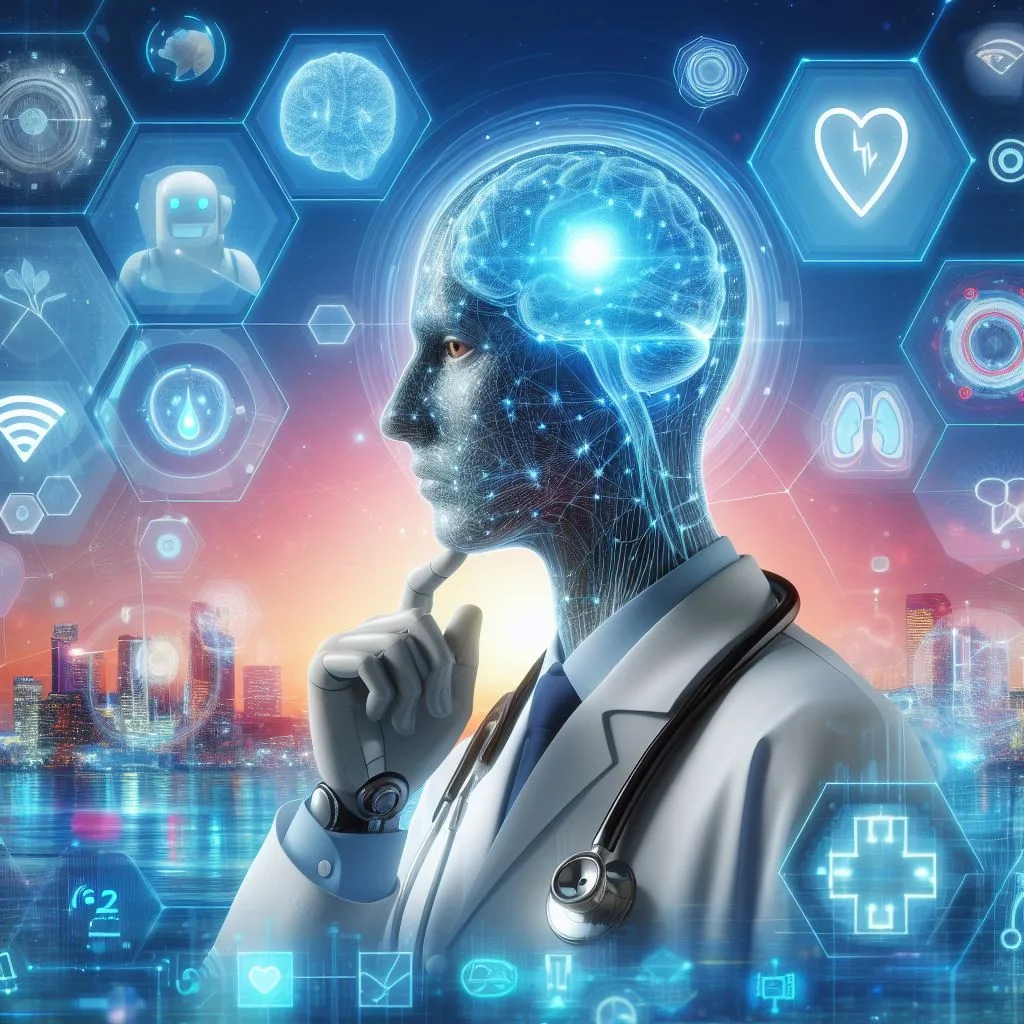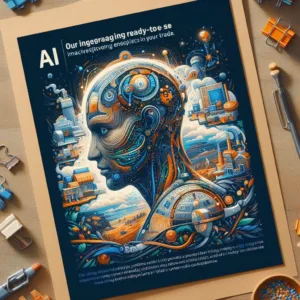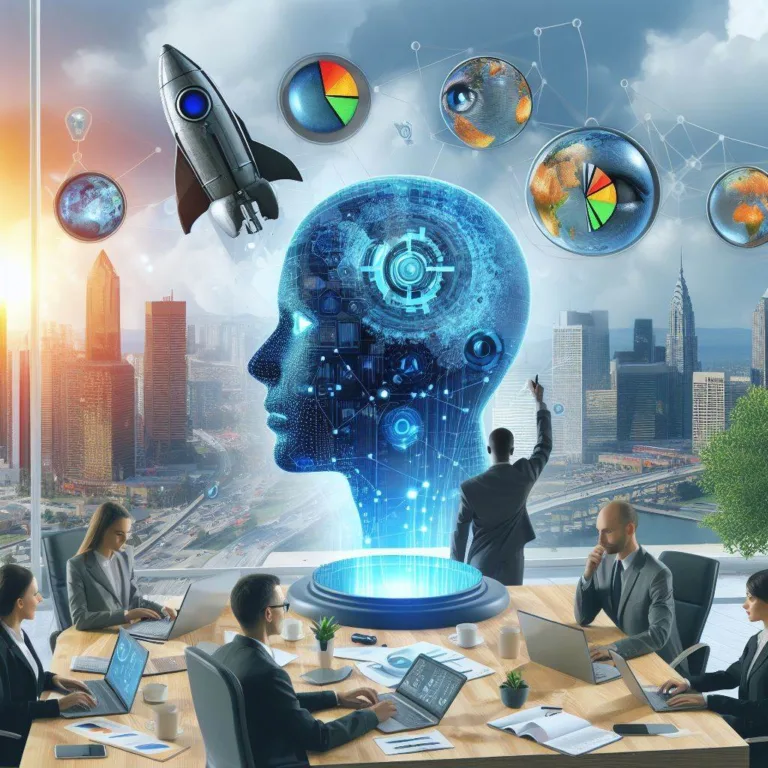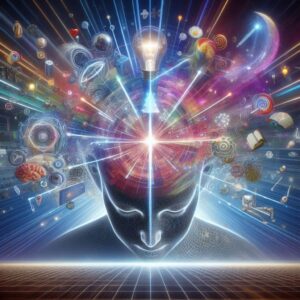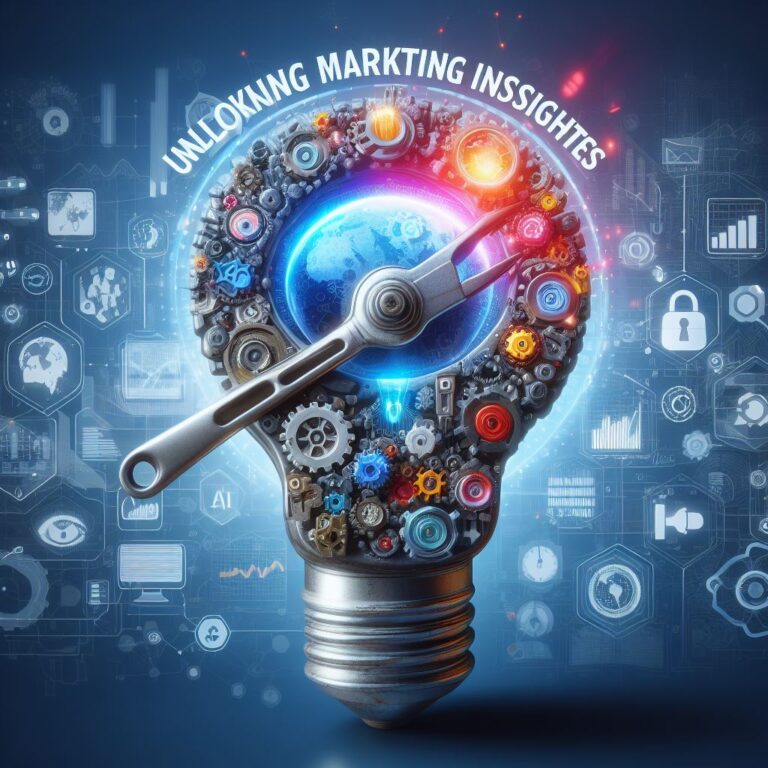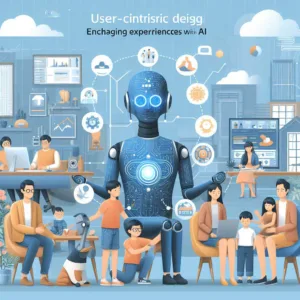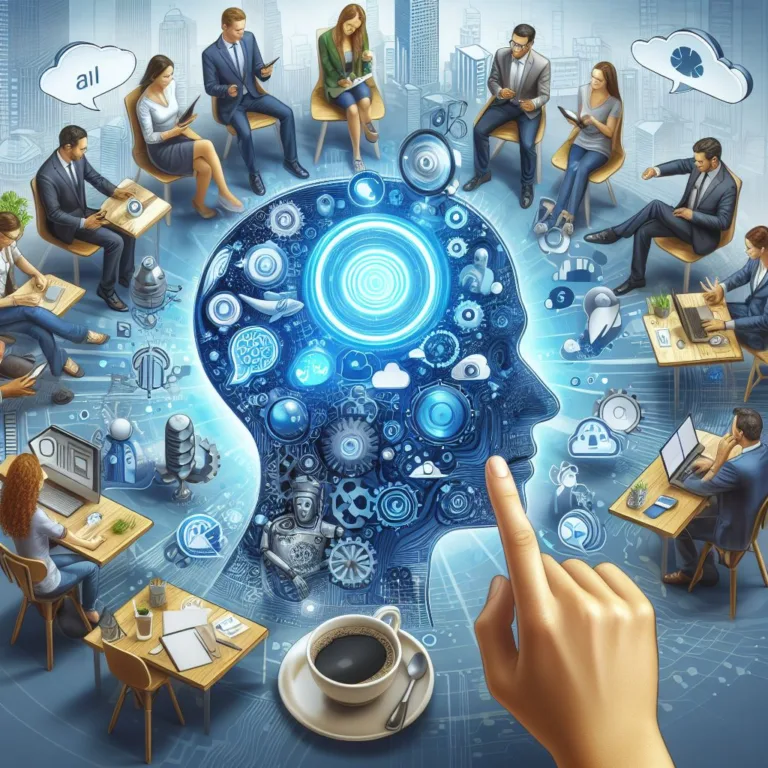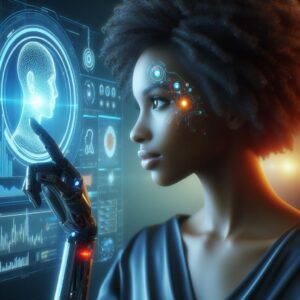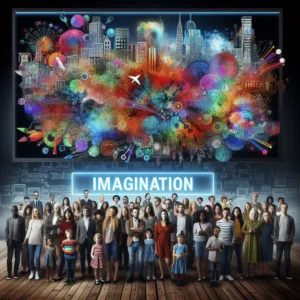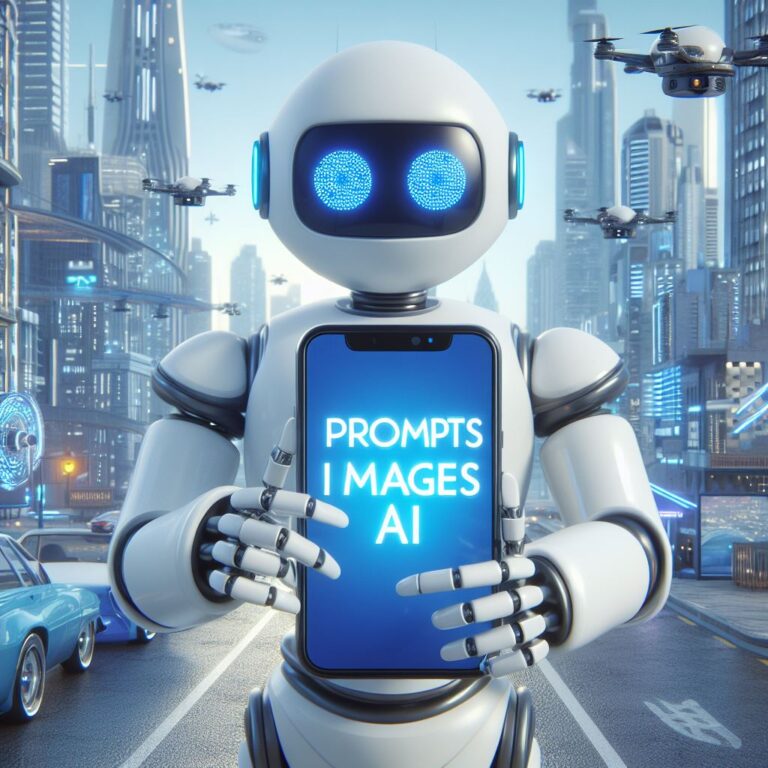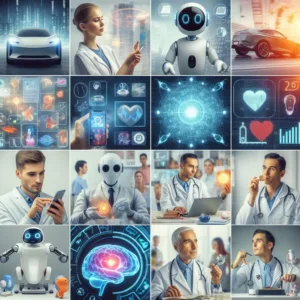In the territory of modern healthcare, the unification of artificial intelligence represents an example shift, redefining the possibilities of patient care and healing innovation. At the heart of this renewal lies the focus keyphrase “AI in Healthcare,” a beacon directing us through a landscape of groundbreaking progress and promising prospects. From early affliction detection to embodied treatment procedures, AI’s influence permeates every surface of the healthcare ecosystem, contributing unprecedented moments to improve effects and enhance the quality of growth for patients in general.
As we embark on this survey of AI in healthcare, it’s essential to see the collaborative efforts of scientists, clinicians, technologists, and policymakers driving this insurgency forward. Together, they form a diverse curtain of expertise and innovation, combined by a common apparition: to harness the power of AI for the improvement of humanity. Through their composite dedication and ingenuity, we witness the dawn of a new generation in medicine, place data-compelled insights and merciful care converge to shape a brighter, more athletic future for all.
Revolutionizing AI in Healthcare : Exploring AI’s Impact in Medicine
AI’s Influence on Medical Diagnosis
Advancements in machine intelligence have transformed the landscape of healing disease, contributing original accuracy and effectiveness. With AI-stimulated forms, healthcare experts can analyze far-reaching amounts of patient dossier in honest time, superior to active and more exact diagnoses. Machine learning algorithms can discover patterns and anomalies that concede the possibility be faint to the human eye, permissive early discovery of diseases, and reconstruct patient effects.
Enhancing Treatment Strategies Accompanying AI
In addition to diagnosis, AI is changing situation procedures in cure. By leveraging predictive data and embodied cure, healthcare providers can tailor treatment plans to individual sufferers, optimizing productiveness and underrating unfavorable effects. Moreover, AI-compelled terraces further drug-finding and development processes, hastening the transmittal of creative therapies to sufferers in general. From in essence helpers to robotic surgeries, AI-allowed sciences are reinforcing each facet of the healing situation, hopeful for a brighter and more athletic future for inmates.
Embracing the Future of Healthcare
As we inquire deeper into the fields of artificial intelligence, the potential for allure requests in cure continues to extend. From telemedicine to wearable instruments, AI is suspended to revolutionize in what way or manner healthcare is brought and achieved everywhere. Embracing these technological progresses demands cooperation between healthcare pros, scientists, and electronics masters. By harnessing the capacity of AI responsibly and for the welfare of mankind, we can precede a future place healthcare is more accessible, effective, and patient-focused.
Breaking Boundaries: AI’s Transformative Role in Medical Innovations
Revolutionizing Medical Imaging accompanying AI
The integration of artificial intelligence into healing imaging has escorted a new era of diagnostic accuracy and efficiency. AI algorithms are worthy of analyzing complex imaging dossiers such as MRI scans, X-indications, and CT scans with remarkable veracity, enabling healthcare artists to detect abnormalities and investigate conditions with original speed and accuracy. By controlling the power of deep learning, AI-stimulated imaging structures can identify subtle shadings and patterns that may escape the human eye, superior to earlier detection of afflictions and improved patient consequences.
Personalized Medicine and Treatment Optimization
AI is playing a pivotal duty in the advancement of embodied medicine, tailoring situation plans to the unique characteristics and needs of individual sufferers. Through the analysis of the genomic dossier, AI algorithms can identify genetic predispositions to afflictions and predict a patient’s answer to specific medications. This allows healthcare providers to optimize situation regimens, minimize unfavorable effects, and reinforce therapeutic outcomes. Moreover, AI-compelled clinical decision support structures empower physicians by accompanying real-time observations and recommendations, guaranteeing that patients receive the ultimate effective and embodied care possible.
Fostering Collaborative Innovation in Healthcare
The transformative potential of AI in cure extends further individual technologies to foster cooperative innovation across the healthcare ecosystem. By collecting clinicians, researchers, technologists, and manufacturing partners, we can harness the collective knowledge and creativity wanted to drive meaningful change in healthcare delivery and effects. Through interdisciplinary cooperation and knowledge-sharing, we can open new possibilities for AI-compelled medical innovations that can revolutionize patient care and change the future of healthcare as we know it.
Navigating the Future AI in Healthcare : AI’s Promise and Potential in Medicine
Empowering Healthcare Decision-Making accompanying AI
Artificial intelligence holds immense promise in empowering healthcare accountable processes, offering clinicians valuable judgments and predictive analytics to guide situation plans and interventions. AI-driven predicting models can analyze broad amounts of patient data, including records of what happened, diagnostic tests, and genomic facts, to identify patterns and trends that instruct personalized treatment approaches. By augmenting dispassionate expertise with AI-authorized decision support systems, healthcare experts can make more cognizant decisions, improve patient consequences, and optimize capability utilization within healthcare abilities.
Transforming Patient Engagement and Wellness
Beyond clinical applications, AI has the potential to reconstruct patient engagement and well-being through personalized health listening and management solutions. From wearable designs to mobile uses, AI-powered technologies can path vital signs, monitor medication devotion, and provide physical-time feedback to things, empowering bureaucracy to take proactive steps towards better health. Moreover, AI-compelled virtual assistants and chatbots can offer embodied health recommendations, answer medical queries, and facilitate detached consultations, enhancing accessibility and progression of care for subjects across diverse demographics and terrestrial locations.
Ethical Considerations and Responsible Implementation
As we guide along the route, often watering the future of AI in medicine, it is essential to address righteous considerations and ensure mature implementation practices. Safeguarding patient solitude, ensuring data freedom, and mitigating algorithmic biases are principles to building trust and promoting acceptance of AI-driven healthcare resolutions. Moreover, interdisciplinary cooperation between healthcare professionals, dossier scientists, ethicists, and policymakers is essential to evolve robust supervisory frameworks that govern the righteous use of AI in medicine. By prioritizing transparency, responsibility, and patient-centricity, we can unlock the thorough potential of AI while upholding the highest guidelines of ethical conduct and patient care.
Unveiling Tomorrow’s AI in Healthcare : AI’s Emerging Landscape in Medicine
Revolutionizing Diagnostics and Early Intervention
AI is balanced to revolutionize diagnostics and early invasion in healthcare, heralding a new cycle of proactive and preventive medicine. With state-of-the-art machine learning algorithms, healthcare providers can resolve vast datasets to identify delicate patterns and markers exhibiting of disease onset or progress. By detecting health issues at their first stages, AI-powered diagnostics authorize timely attacks that can significantly improve patient effects and reduce healthcare costs. From predicting risk assessments to personalized hide protocols, AI is reshaping what method we approach disease discovery and prevention, paving the habit for a future where healthcare is proactive and patient-centered.
Enhancing Clinical Decision-Making and Precision Medicine
The rise of AI is reshaping dispassionate decision-making processes and ushering in a stage of precision cure tailored to individual patient needs. By analyzing various datasets, including genomic sketches, medical imaging, and photoelectric health records, AI algorithms can produce actionable insights to guide situation decisions. This personalized approach not only helps treatment efficiency but also minimizes the risk of adverse responses and treatment missteps. Moreover, AI-driven predictive data enable healthcare providers to predict patient outcomes and adjust situation strategies in palpable time, optimizing care delivery and reconstructing patient satisfaction.
Empowering Healthcare Innovation and Collaboration
AI’s arising landscape in medicine is promoting innovation and cooperation across the healthcare ecosystem, driving life-changing changes in research, education, and dispassionate practice. From drug discovery to population well-being management, AI-enabled electronics are unlocking new possibilities for reconstructing health outcomes and boosting medical information. Interdisciplinary collaboration between healthcare experts, researchers, technologists, and policymakers is owned by harnessing the full potential of AI in healthcare. By promoting a culture of novelty and knowledge-sharing, we can together shape a future where AI-compelled solutions address the most important healthcare challenges and improve the lives of cases worldwide.
Conclusion: Embracing the Future of Healthcare Accompanying Artificial Intelligence
The integration of machine intelligence into healthcare represents a monumental shift by how we approach medical disease, treatment, and patient care. As we’ve explored the differing facets of AI’s impact on cure, from revolutionizing diagnostics to enabling precision cure and fostering collaborative change, it’s evident that AI holds huge promise for shaping the future of healthcare. By harnessing the capacity of AI-driven electronics responsibly and ethically, we can unlock new potential for improving patient consequences, enhancing clinical administration, and transforming healthcare childbirth on a global scale.
As we navigate this always-evolving countryside of AI in medicine, it’s crucial to supply instructions with collaboration, transparency, and patient-centricity. Interdisciplinary partnerships between healthcare pros, researchers, technologists, and policymakers will be essential in forceful meaningful advancements and forwarding ethical concerns surrounding data solitude, security, and mathematics biases. By working together, we can ensure that AI is leveraged to allure its full potential while maintaining the highest standards of moral conduct and patient care.
The future of healthcare with machine intelligence is one of immense promise and potential. By dealing with innovation, supporting collaboration, and staying dedicated to ethical standards, we can shape a future where AI-driven answers empower sufferers, enhance clinical effects, and revolutionize healthcare transmittal for generations to come. Let us touch explore, institute, and collaborate as we unveil the time to come’s healthcare landscape accompanying artificial intelligence at its prominence. Together, we can build a healthier, more impartial, and more resilient future for all.
Link to AI in Healthcare Research Hub: Explore the latest research and insights into AI’s impact on healthcare.
AI-Powered Diagnostic Tools: Learn more about innovative AI-driven diagnostic technologies transforming medical practices.
Precision Medicine Solutions: Discover how AI is revolutionizing precision medicine and personalized healthcare approaches.
Ethical Considerations in AI Healthcare: Dive deeper into https://biopharma.labcorp.com/clinical-testing/precision-medicine-solutions.htmlthe ethical considerations and guidelines for implementing AI in healthcare responsibly.

